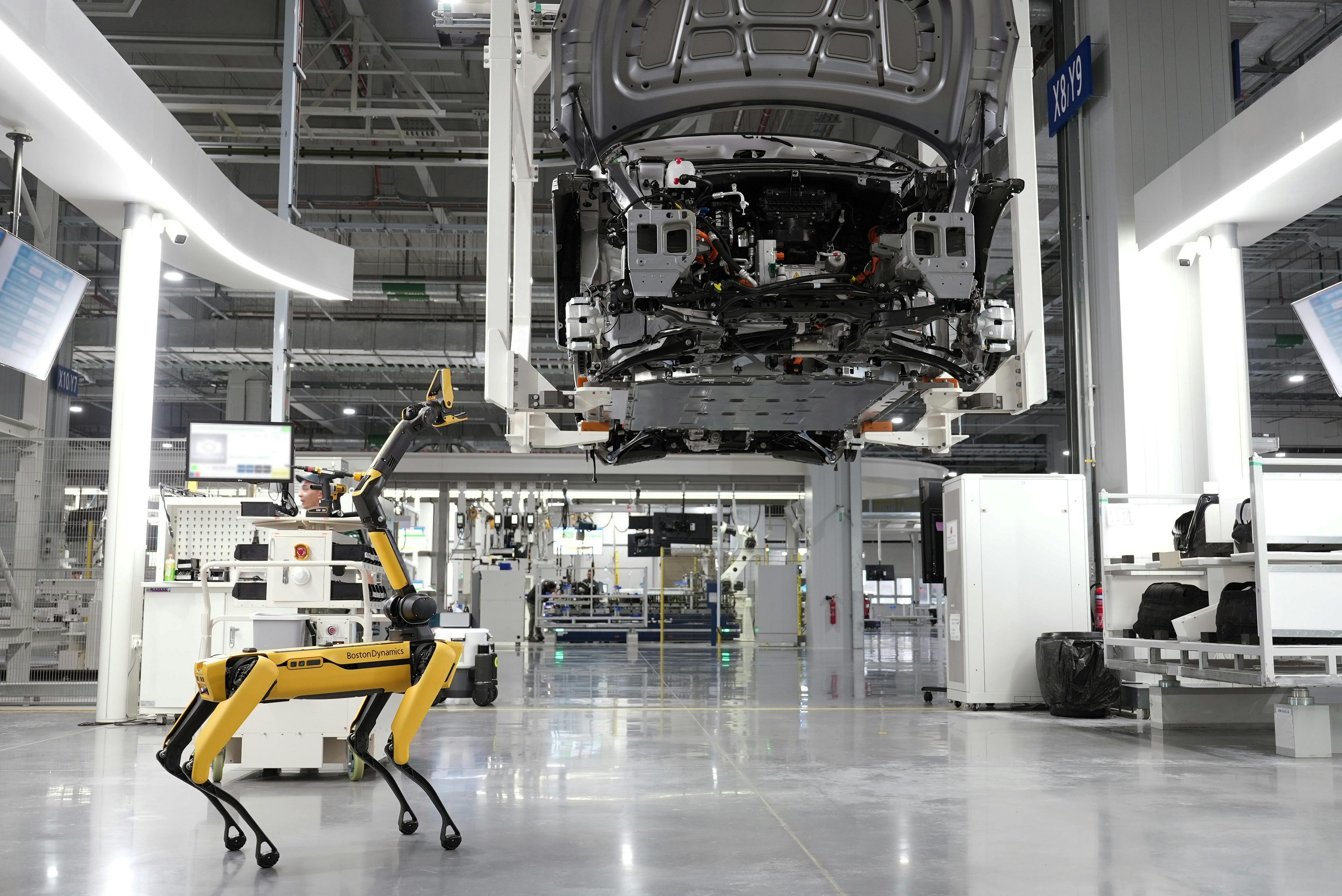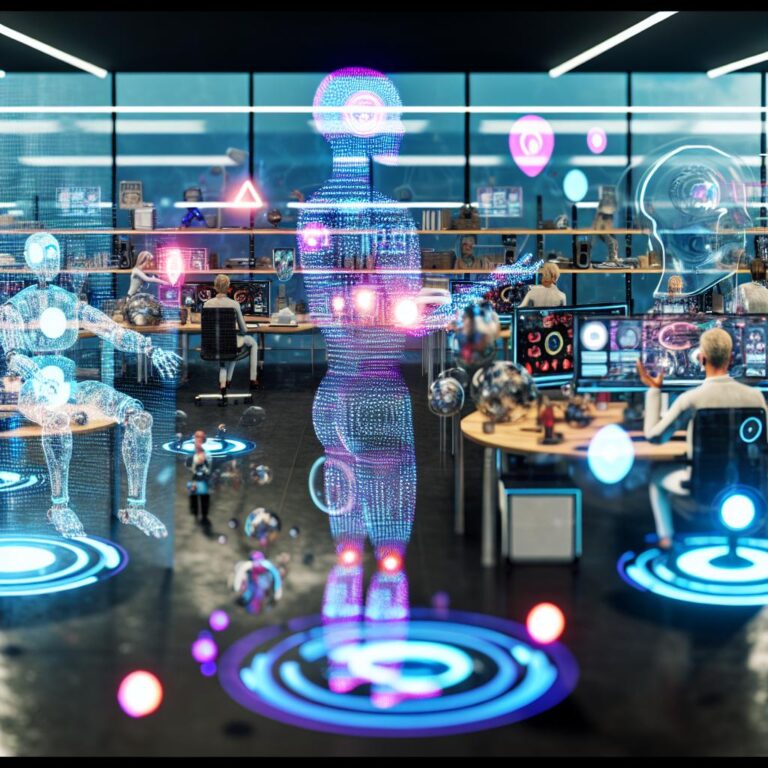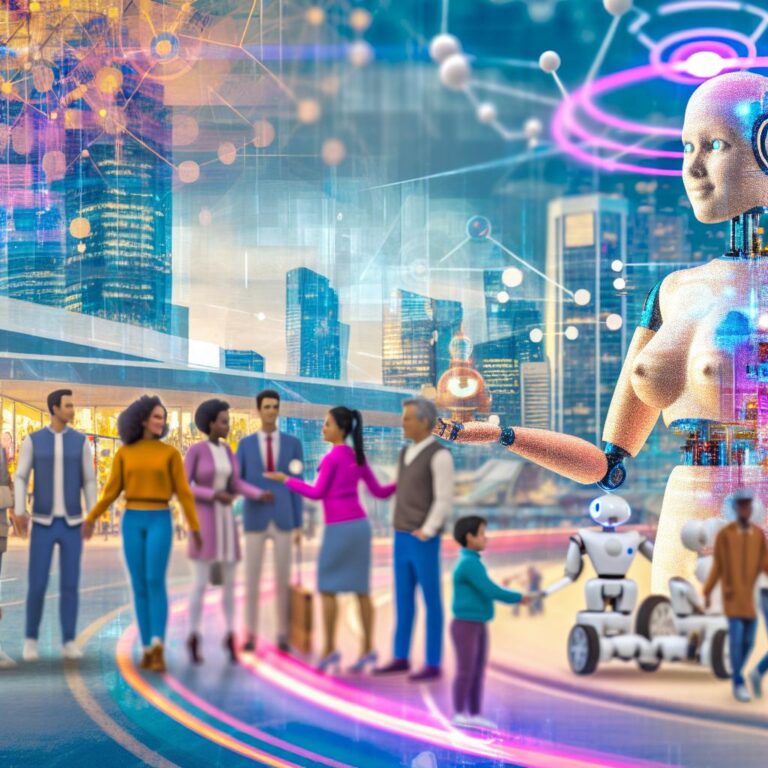Deep Learning Transforms Industries: How Is It Used?

Deep Learning in Healthcare:
- Diagnoses diseases by spotting patterns from large data sets.
- Improves patient outcomes using predictive analytics.
- Enhances medical imaging accuracy and speed, identifying problems like tumors.
Deep Learning in Finance:
- Assesses risk by analyzing large datasets.
- Detects fraud through pattern recognition.
- Powers automated trading systems for faster, better decisions.
AI in Automotive Industry:
- Advances autonomous vehicle technology.
- Improves safety features by providing real-time environmental reactions.
- Enhances future transportation through self-driving vehicles, reducing traffic and pollution.
AI in Retail:
- Personalizes customer experiences by understanding preferences.
- Optimizes inventory with computer vision for accurate stock management.
- Powers personalized marketing by analyzing consumer data.
Challenges in Deep Learning:
- Faces data privacy and ethical concerns like bias and accountability.
- High implementation cost and requires skilled talent.
- Ensures data security via strict regulations and encryption.
Smart Manufacturing with AI:
- Enhances process efficiency and error reduction.
- Optimizes supply chain management for cost-effectiveness.
- Boosts production efficiency by reducing errors and alerting issues early.
All areas benefit from improved efficiency and accuracy due to AI-driven processes.
Deep learning is changing our world more than ever before. As an avid technology enthusiast, I dive into the exciting ways this amazing technology reshapes various industries. From healthcare breakthroughs to smarter cars, deep learning opens new doors everywhere! This blog post explores how deep learning is used to innovate and solve challenges in sectors like finance, retail, and manufacturing. Let's discover how AI transforms our future, one industry at a time.
How is Deep Learning Transforming Healthcare?

Deep learning changes healthcare in big ways, and I'm excited to share how. Imagine machines that can learn and help us find diseases. This is where AI in healthcare shines. One main application of AI is in diagnosing diseases. Machines look at vast data and spot patterns that humans might overlook. This helps doctors make accurate, early diagnoses.
You'll also find AI hard at work in making healthcare smarter. How does predictive analytics improve patient outcomes? Predictive tools use patient data to foresee dangers and suggest actions. This keeps patients healthier and reduces unnecessary treatments. Doctors can plan better and give personalized care.
Let’s talk about medical images. AI-powered healthcare diagnostics take images and give results quicker. What are the benefits of using AI in medical imaging? AI checks pictures with high accuracy and finds problems like tumors. This can lead to faster and more precise treatments. It saves time for doctors, too, letting them focus on care.
Healthcare technology solutions, like those using deep learning, are game-changers. They make healthcare more efficient, safer, and personal. From disease diagnosis to imaging, AI opens new ways to help us better care for our health.
What Role Does Deep Learning Play in Finance?
Deep learning is changing the game in finance. Financial institutions use deep learning for many purposes. One big use is for risk assessment. But how do they do this? They analyze large data sets to predict how risky an investment might be. It helps them make safer choices and avoid bad risks.
Another great use is in fraud detection. Fraud can cost banks a lot of money. AI can spot unusual transactions in a blink. It identifies patterns humans might miss, catching fraud before it causes damage. This keeps the banks, and their customers, protected.
Automated trading systems are also benefiting from deep learning. Machines can trade stocks faster than any human. They use deep learning to make decisions quickly and correctly. This results in better returns and fewer human errors.
Deep learning is like having a super-smart tool in the finance world. It works fast and keeps getting smarter. Financial institutions that use it can stay a step ahead. That's why they love deep learning so much.
Want to know more about how deep learning can transform finance? You can explore here.
How is AI Revolutionizing the Automotive Industry?

AI is changing the way cars work. One exciting change is in autonomous vehicles technology. What advancements have been made in autonomous vehicle technology? They can now travel safely without human drivers. Companies use AI to teach cars to "see" roads, signs, and people. This is possible by using deep reinforcement learning, which helps the cars learn from their own actions.
How does AI contribute to vehicle safety features? AI helps make cars safer by adding smart safety tools. For example, some cars slam on the brakes if a hazard is near. Others alert drivers if they stray from their lane. These advanced features rely on the power of AI systems to scan and react to the environment in real time.
What are the future prospects of AI in transportation? The future looks bright with self-driving cars taking the lead. These cars might one day rule the roads. They'll reduce traffic jams and cut down pollution. As the technology advances, expect new levels of comfort and safety in your daily commute.
For more about self-driving car technology, visit this link to learn more.
How Are Retail Industries Benefiting from Deep Learning?

Retail is using AI to change how customers shop. One big question is, how is AI enhancing customer experience in retail? Precision answer: AI helps by making shopping more personal. With new AI systems, stores now understand your likes and show products you'll enjoy. This gives a better shopping time, makes you smile, and keeps you coming back.
In inventory management, AI has transformed operations with computer vision technology. What are the applications of computer vision in inventory management? Precision answer: It counts stock and checks quality. AI uses cameras to see and track items. This means fewer mistakes and saves time for workers.
Marketing is another area revolutionized by AI. How are personalized marketing strategies driven by AI? Precision answer: AI learns what you like and sends offers just for you. Retailers use data to send you deals you care about. This helps stores sell more and feel more connected to you.
Overall, AI in retail is like having a smart helper who knows you. It learns what you like, helps stores work better, and makes shopping fun. You can learn more about these advancements here.
What Challenges Do Industries Face Implementing Deep Learning?

Implementing deep learning comes with some really big hurdles. One major concern is about how we treat data and respect people's rights. When we use large amounts of data, it raises worries about data privacy and AI. Companies must ensure the data they use remains secure and private.
Many worry about ethical issues when it comes to AI. One key question is, What are the ethical concerns related to AI deployment? The answers are bias, transparency, and accountability. AI systems can act unfairly if not trained well. We must know how these systems make decisions to trust them. And when AI goes wrong, who takes the blame? These are all tricky topics that businesses need to think about.
Another big challenge is building systems that are reliable and cost-effective. Deep learning needs lots of computer power and special tools. Not all businesses have the means to set up this kind of tech. Cost becomes a huge barrier for smaller companies.
So, how is data privacy maintained in AI systems? Companies have to follow strict rules and use encryption. They must collect data responsibly and make sure personal details stay safe. Without good data handling practices, trust is lost, and systems can fail.
Lastly, what are the main barriers to deep learning implementation in industries? The answers are cost, complexity, and talent. Deep learning needs skilled workers, which can be hard to find. Also, creating deep learning models is tough and often expensive. These hurdles make it difficult to integrate AI into normal business activities.
How is Deep Learning Used in Smart Manufacturing Processes?

Deep learning helps us make factories smarter. It can help machines learn new tasks by themselves. One big question people have is: What innovative AI solutions are used in manufacturing today? Precision shows it speeds up processes and reduces mistakes in tasks. Robots with AI can figure out better ways to do things without getting tired like people do. They see patterns that we humans might miss.
Another question is: How does AI optimize the supply chain management? Precision informs us that AI tools plan and forecast demand better. This cuts waste and ensures everything is available when needed. AI helps manage goods moving from one place to another faster and cheaper. Good supply chain management saves money and makes businesses more competitive.
People also wonder: What are the benefits of AI in production efficiency? Precision answers by showing us that machines work faster and can do more than people alone. They lower costs by not making as many errors. If a machine spots a problem, it can alert us before it gets worse. Businesses can focus on quality and not just speed. For more about deep learning in industries, visit this helpful link.
Conclusion
AI is reshaping key sectors like healthcare, finance, and automotive through deep learning. We've explored AI's diagnostic power, risk assessment capability, and autonomous vehicle advances. Retail gains from personalized strategies, while manufacturing becomes more efficient with AI. However, ethical concerns and data privacy pose challenges.
Deep learning's benefits are clear, but we must tackle implementation barriers head-on. By balancing innovation with ethics, industries can unlock AI’s full potential. Keep exploring, learning, and questioning as technology continues to evolve and transform our world.






